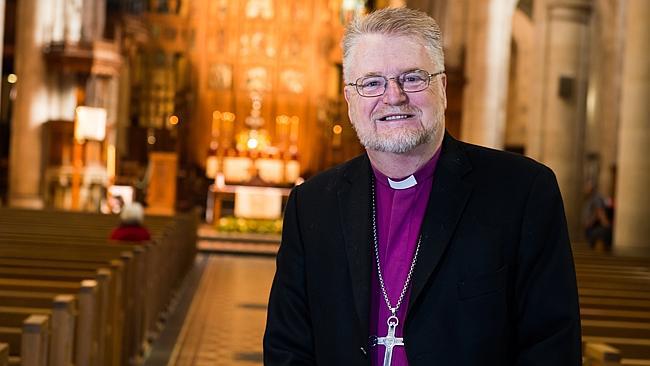|
Anglican priests free to report serious crimes, including child abuse
By Nadja Fleet
ANGLICAN priests will no longer be bound by the 1000-year-old convention of confidentiality in confessions when they are told of serious crimes, including child abuse. Church leaders have unanimously backed a historic change that starkly sets Anglican policy against that of the Catholic church, which maintains that “the Seal of Confession is inviolable”, and creates grounds for a major rift between the nation’s two most powerful Christian bodies. About 250 members of the Anglican Church, including bishops and clergy representatives, voted to amend the 1989 canon on confession at the General Synod in Adelaide on Wednesday. The Christian convention of strict secrecy of confessions is believed to be more than 1000 years old. The policy change only becomes active, however, where an individual diocese adopts it. Adelaide Archbishop Jeffrey Driver told The Advertiser last night he would encourage his dioceses to adopt the new policy. “I understand the importance of the confessional, but on balance I believe this is a healthy step,” he said. Most of the church’s 23 dioceses around the country are expected to vote in favour of the decision by the end of the year. The existing law says the confession of a crime is to be kept confidential unless the person making the confession consents to a priest disclosing it. But the new policy will allow priests to report serious crimes if the person making the confession has not reported the offence to police and director of professional standards. These crimes include child abuse, child pornography or other offences that would lead to a jail term of five years or more. Sydney barrister Garth Blake, who proposed the change, said it aimed to improve the safety of the community and ensure the rules of the church did not act as a cloak for serious offenders. “It’s a significant step,” he said. “I’ve been involved in dealing with child abuse in churches since 1997 and it seemed to me that protecting children and the vulnerable takes precedence over the confidentiality of confessions.” He said the issue of confession protections had been discussed since 1998. The shocking extent of child abuse exposed by the current royal commission into institutional care had helped garner the support needed to pass the legislation. “The terrible disclosure of child abuse in churches has changed the minds of people previously opposed that our paramount duty is to protect children and the vulnerable,” he said. Diocese administrator John Coleman, of Rockhampton, who was a Roman Catholic priest for seven years, said the decision was a “major step forward for the Anglican church” and expected most dioceses to pass on the changes. “I believe that there is real merit in this proposal,” he said. “I believe it gives me as a confessor an opportunity to do what I believe is the right thing. I believe it gives me the opportunity to protect children where I see the need.” He said he was unable to disclose whether he had been “burdened” with confessions of child abuse during his time as a Catholic priest. “There were very difficult issues ... that I have dealt with by myself,” he said. Former prime minister Julia Gillard launched a royal commission to investigate offences involving religious and non-religious organisations two years ago. It has the scope to examine not only abuse but the role of institutions in covering it up two years ago. Ms Gillard slammed the use of the confessional to avoid reporting abuse, saying it is a “sin of omission” and all adults have a duty to protect children. But Australia’s most powerful Catholic, Archbishop of Sydney George Pell, insisted that priests who hear confessions of child sex abuse must keep quiet because “the Seal of Confession is inviolable”. He said priests should avoid taking confessions from colleagues suspected of being pedophiles but that they cannot then report the crime to police. “If that is done outside the confessional (it can be passed on),” he said. “(But) the Seal of Confession is inviolable If the priest knows beforehand about such a situation, the priest should refuse to hear the confession.” The Broken Rites advocacy group welcomed the move, but said state and territories had to follow suit and introduce mandatory reporting laws to stop churches from “covering up” crimes.
|
.
Any original material on these pages is copyright © BishopAccountability.org 2004. Reproduce freely with attribution.
